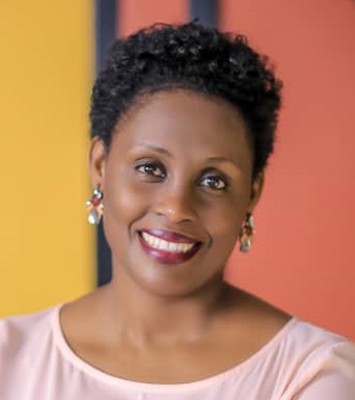The Power of Individuals: Why Formal Institutions Aren’t the Only Ones Driving Africa’s Innovation and Fintech Space
There’s been a lot of well-deserved attention on the efforts of businesses, NGOs and other institutions working to reshape Africa’s innovation and fintech ecosystem. Indeed, Insight2Impact has highlighted several of those efforts in the Openi2i series. But there are equally important efforts underway that also deserve attention, conducted not just by institutions themselves, but also by the individuals working within them – and these efforts are also having a major impact on Africa’s innovation space.
The work these individuals do cuts across multiple levels. Not only do they contribute to the missions of their institutions, they also collaborate more broadly outside of their organizations, building bridges between entities while creating the connections and networks that support entrepreneurs and innovators. Their collective voice has the power to shape policies and set agendas that ultimately strengthen the innovation ecosystem. Their work is especially vital where formal information technology (IT) and business support entities are nascent or difficult to access. And in the increasingly connected world we live in, these individuals can now connect with others across both sectors and national/regional boundaries, opening up new possibilities and partnership opportunities that can inform and advance development approaches appropriate to different contexts.
As part of insight2impact’s work, we’ve had the opportunity to collaborate with many impactful individuals working to connect ecosystems and build networks that facilitate change. Zianah Muddu, General Secretary of the Africa Fintech Network (AFN), is one such leader.
A pioneer in Uganda’s IT and fintech industries, Muddu’s work has impacted countless individuals and organizations. Along with her leadership role at AFN, she currently serves as Director of Business Development at the Innovation Village in Kampala, and Engagement Partner for Uganda’s Financial Technology Service Providers Association (FITSPA). In the Q&A below, Muddu discusses her experience working in the development and innovation space, and how they illustrate the power individuals can have when they connect to form networks and collectives focused on driving emerging industries.
Sarah Goodier: Talk a bit about how you came to work in the development and innovation space.

Zianah Muddu
Zianah Muddu: Prior to joining the development and innovation space, I spent 12 years of my career working with the youth in technology, mentoring and managing the software development process in True African(U) Ltd, one of the oldest fintechs in Uganda. This experience gave me an opportunity to work with start-ups that develop solutions which are critical to solving social and economic challenges at the bottom of the pyramid. During this time, I noted that one of the challenges facing tech entrepreneurs was their minimal exposure to doing business professionally. Most of them don’t have the background, experience and exposure required to start a business: They start their businesses during pitch competitions, at the university or immediately after graduating, which means continuous mentorship and exposure to markets is important for their first years.
These challenges presented an opportunity for an individual like myself to build tech support solutions at a macro level. And over time, my contributions have shifted from offering tech start-up support as an individual, to supporting these businesses at scale through my work at FITSPA. This support currently ranges from facilitating exposure to investors, mentors and both local and international markets, to arranging professional engagements with subject matter experts from various fields.
This shift to the development and innovation space was enabled by my past experience working with tech businesses: The work had exposed me to key players in the digital finance space, including but not limited to financial institutions, the fintech community, mobile network operators and development partners. I leveraged these networks to build professional linkages with various players in Uganda’s greater technology ecosystem.
In the development space, I now have a chance to support local fintech businesses ready for scalability, regulation and exposure to other markets. These local businesses are challenged by the fact that they have minimal or no brand recognition both locally and globally. This hinders the rapid growth of the sector – which is booming in other African economies and attracting massive investment. For example, in 2019 African start-ups raised $1.34 billion, with fintech taking the most – $678.73 million. But 75% of the deals went to Nigeria, Kenya and South Africa.
SG: Who are the different actors you are working with in these spaces?
ZM: On a regular basis I work with regulators, financial institutions, innovators, entrepreneurs in the fintech communities locally and internationally, investors, academia, mobile network operators and development partners.
SG: What has the role of networks and communities been in helping to connect the fintech ecosystem in Uganda?
ZM: Communities like industry associations (i.e.: Uganda Bankers’ Association, Uganda Insurers Association), microfinance networks, and FITSPA bring together individuals and companies with like minds, who collectively communicate their business agenda to other players in the ecosystem. These communities provide a platform for the businesses to take advantage of opportunities while continuously advocating for pro-IT policies that will accelerate the growth of the industry. For instance, FITSPA was able to host the Africa Fintech Festival 2019 successfully, simply because we had the right forum to unite the area’s fintechs to leverage the benefits of such regional communities. Hosting the Festival improved Uganda’s ratings globally, as seen in the Global Fintech Index 2020. In addition to reaching a wider audience outside the country, the outcomes of this new visibility have included attracting investors, enabling businesses to scale, and drawing regulator recognition.
I also have to mention that when FITSPA was set up in Uganda, it sparked a surge of new awareness within the country of the relevance of fintech to the economy.
SG: Why do you think individuals have played this role rather than formal institutions?
ZM: Individuals have played a key role in building Uganda’s tech ecosystems due to the following reasons:
The country has a high youth unemployment rate (83%) and minimal bureaucracy for registering and starting a business. These aspects have set the scene for the emergence of tech start-ups. The downside of this start-up scene is that the formal institutions like the banks and insurance companies are not fully equipped to support the growing private sector – something that could be attributed to the fact that these formal structures refrain from designing products for tech start-ups because they are considered high-risk. It’s also important to note that the country’s formal IT support institutions have not been in existence for long, so there are gaps in data to inform these institutions’ efforts to support the ecosystem. This gap creates an opportunity for individuals to respond to the needs of the ecosystem by forming entities that support various aspects of the sector, like building software companies, legal support and business advisory services.
In addition, individual players have a key role to play in creating shared services models that lower the cost of doing businesses for tech start-ups. Hubs like the Innovation Village, Outbox and Hive Colab provide working space where start-ups pay minimal rent and get access to mentorships, business opportunities, legal services, accounting services, investors, etc. At present, the cost of doing business is quite high for a tech start-up, and subsidizing this cost through creating these linkages is a definite solution for the ecosystem.
Individuals with the ability to unite the ecosystem also play a critical role in closing the gap between an individual start-up and formal institutions. It would be rather difficult for a tech company to individually advocate for policy changes , so it becomes easier to do this through using an entity like FITSPA as an umbrella to front their agenda.
Globalization has also made it possible for individuals to reach ecosystem builders in other economies all over the world. The internet and mobile phone penetration have increased these individuals’ access to global opportunities to support the ecosystem, without the need to use formal structures (like the Uganda Investment Authority or Uganda Chamber of Commerce) to access global players. For example, by partnering with organizations like FITSPA, one can easily connect with the Africa Fintech Network, the African Development Bank, the European Union, the International Trade Centre, Microsoft, Mastercard Foundation, the i2i facility, the Gates Foundation or Visa, to enhance the ecosystem through new partnerships. More than ever before, globalization and the internet have given individuals an opportunity to access vast possibilities, and turn them into profitable realities.
SG: What has this taught you about the future of ecosystem development on the continent, and the ideal role of institutions vs. individuals in this process?
ZM: Individuals do not have the resources or the authority to develop the backbone infrastructure needed to support the ecosystem, like roads, electricity, telecommunication and affordable internet. We need institutions, like the government, to build the necessary infrastructure which individuals can then use to drive business growth, improvements in living standards and prosperity. These national institutions are also critical in providing a policy framework that guides the flow of activities within the state.
The role of individuals is to build networks within the ecosystem to collectively communicate their agenda to the institutions that drive national policies, in order to further enhance the activities of the key players within the ecosystem – from trade activities to technology advancement initiatives.
In addition, when individuals are active in different sectors, they are able to gather insights and give constructive feedback to policymakers.
SG: Why do you think development practitioners are looking to engage with this ecosystem to affect change in the tech, data and fintech space?
ZM: They are looking at untapped markets with huge potential, and Africa is one of them. They want to be part of this exciting growth.
On the other hand, the existing solutions from more mature markets have mostly been designed for developed markets, and will not always apply to Africa. The African context opens up a huge space for new home-grown innovators to create concepts that will work for markets like Africa.
Further to this, African innovators are building solutions to solve Africa’s problems – and these solutions are geared towards creating a socioeconomic impact, i.e.: financial inclusion solutions targeting bottom of the pyramid users. This explains why so much money (nearly $1 billion in 2018), is going into Africa’s technology sector, underpinned by an enthusiastic young generation determined to make their mark.
Sarah Goodier is Monitoring, Evaluation and Learning (MEL) Officer at Cenfri, a NextBillion partner.
Photo courtesy of Christina Morillo, via Pexels.
- Categories
- Finance




